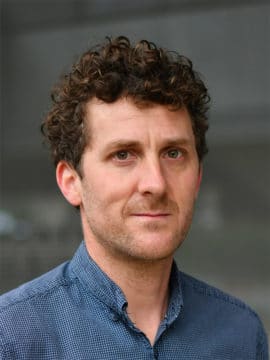Network dynamics for procedural learning
Our team aims at understanding the biological and computational principles underlying motor control and procedural learning both in normal and pathological conditions (i.e. Parkinson’s disease, dystonia, or epilepsy). We study the properties of neural networks in various brain circuits linking areas of the cortex, to the basal ganglia and the cerebellum across a wide range of species (including newts, songbirds, rodents and primates). The ambitious nature of our research, that is to understand the complex dynamics of neuronal networks, requires the constant development of innovative methods, both experimental: large-scale in vivo electrophysiological/optical recordings coupled with circuit-specific perturbations (such as opto/pharmacogenetics and closed-loop behavioural manipulations), and theoretical: analysis and simulations of biologically realistic models. Our team also relies on strong interactions between scientists performing fundamental research and clinicians working at the hospital with patients with the ultimate goal to push forward the translational impact of our discoveries.
Mots clés
Apprentissage, Assemblées neuronales, Comportement, Fonctions exécutives, Modélisation des neurones et des réseaux de neurones, Motricité, Neurocomputation, Neurophysiologie, Optogénétique, Optogénétique et chemogénétique, Parkinson, decision-makingSelected publications
Striatal and cerebellar vesicular acetylcholine transporter expression is disrupted in human DYT1 dystonia. Mazere J, Dilharreguy B, Catheline G, Vidailhet M, Deffains M, Vimont D, Ribot B, Barse E, Cif L, Mazoyer B, Langbour N, Pisani A, Allard M, Lamare F, Guehl D, Fernandez P, Burbaud P. Brain. 2021, Apr 12;144(3):909-923. doi: 10.1093/brain/awaa465.
The adaptive value of probability distortion and risk-seeking in macaques’ decision-making. Nioche A, Rougier NP, Deffains M, Bourgeois-Gironde S, Ballesta S, Boraud T. Philosophical Transactions of the Royal Society Lond B. 2021, Mar;376(1819):20190668. doi: 10.1098/rstb.2019.0668.
A Disynaptic Circuit in the Globus Pallidus Controls Locomotion Inhibition. Aristieta A, Barresi M, Azizpour Lindi S, Barrière G, Courtand G, de la Crompe B, Guilhemsang L, Gauthier S, Fioramonti S, Baufreton J, Mallet NP. Current Biology. 2021, Vol31(4):707-721.e7. doi: 10.1016/j.cub.2020.11.019.
The globus pallidus orchestrates abnormal network dynamics in a model of Parkinsonism. de la Crompe B, Aristieta A, Leblois A, Elsherbiny S, Boraud T, Mallet NP. Nature Communications. 2020, 11:1570. doi: 10.1038/s41467-020-15947-w
What is the true discharge rate and pattern of the striatal projection neurons in Parkinson’s disease and Dystonia? Valsky D, Grosberg SH, Israel Z, Boraud T, Bergman H, Deffains M. Elife. 2020, 9, e57445. doi: 10.7554/eLife.57445
Cortico-striatal synchronization in human focal seizures. Aupy J, Wendling F, Taylor K, Bulacio J, Gonzalez-Martinez J, Chauvel P. Brain. 2019, 142 (5), 1282-1295. doi: 10.1093/brain/awz062
A subcortical circuit linking the cerebellum to the basal ganglia engaged in vocal learning. Pidoux L, Le Blanc P, Levenes C, Leblois A. Elife. 2018, 7, e32167. doi: 10.7554/eLife.32167.001
A canonical neural mechanism for behavioral variability. Darshan R, Wood WE, Peters S, Leblois A, Hansel D. Nature Communications. 2017, 8 (1), 1-13. doi: 10.1038/ncomms15415
Team member(s)
Chercheurs, Praticiens hospitaliers...
Emmanuel Cuny Cuny (University Teacher - Researcher - Hospital practitioner)
Marc Deffains Deffains (Researcher)
Pierre Burbaud Burbaud (PU-PH)
Thomas Boraud Boraud (Director of IMN)
Jérôme Aupy Aupy (Maître de conférence universitaire - Personnel hospitalier)
Alexis Dubreuil Dubreuil (Researcher)
Ingénieur(e)s, technicien(ne)s
Post-doctorant(s)
Doctorant(s)
Elena Nicollin Nicollin
Carmen Guerrero-Marquez Guerrero-Marquez
Edouard Courtin Courtin
Léa Chibany Chibany
Simon Dejean Dejean
Yasmin de Lourdes Leite Guerra Leite Guerra
Raphaël Rodriguez Rodriguez
Luke C. Westlake Westlake
Yousra Ouazzani-Touhami Ouazzani-Touhami
Neuropsychologist(s) and speech therapist(s)
Ingénieur(s) hospitalier(s) et ARC


